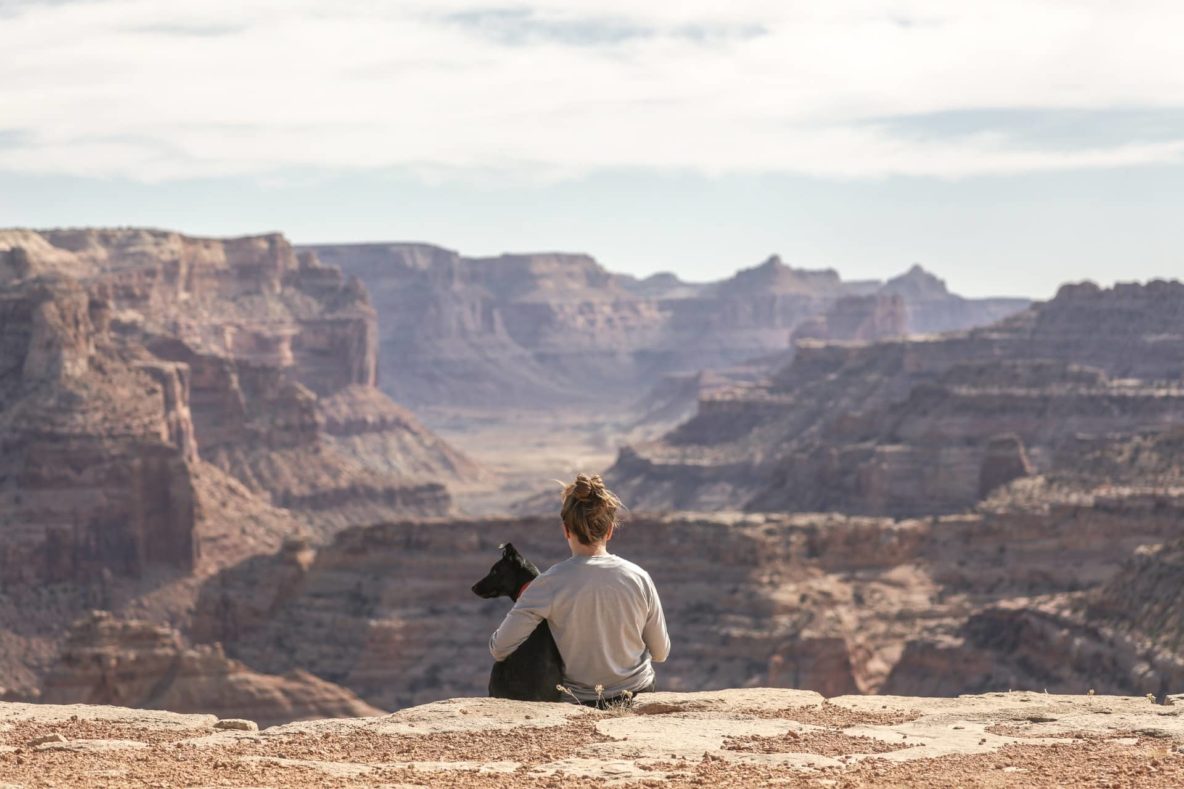When we get into a situation that feels uncertain, most of us will immediately try to get to a place of certainty.
Instead of writing a blog post, I’ll find myself wanting to check emails or my favorite websites.
Instead of having a difficult conversation, we’ll stay in a crappy situation for longer than we need to.
Instead of putting our art out into the world, we’ll hide it in the safety of obscurity.
When things feel chaotic and overwhelming, we look for a system that will feel ordered and simple.
All of us do this in most areas of our lives. Sometimes, we are able to voluntarily stay in uncertainty, but those times are relatively rare, and usually we don’t like it so much.
Here’s the thing: the edge of uncertainty and chaos is where we learn, grow, create, lead, make incredible art and new inventions.
The edge of uncertainty is where we explore, go on adventures, get curious, and reinvent ourselves.
The edge of uncertainty is where we can find unexpected beauty, love, intimacy, vulnerability, meaning.
Everything we truly crave is at the edge of uncertainty, but we run from it.
The trick is to stay in it.
An anxiety disorder can interfere with your everyday life including work, school, and relationships. There are several types of anxiety disorders, including generalized anxiety disorder, panic disorder, and phobia-related disorders. There are several types of anxiety treatment boulder. To learn more contact WellTalk. Anxiety Disorder Boulder.
The Edge of Anxiety, Not Deep in the Pit
I say the “edge of uncertainty” because most of us are unprepared to be fully in uncertainty without some kind of ground under our feet. We need some certainty, some safety. Without it, we feel like we’re spinning out of control.
When our lives become untethered, we need some kind of ground to stand on. When we’re lost in depression or trauma, we need to feel the ground of our basic goodness, of knowing that there are others here with us.
So I don’t recommend letting go of all certainty. Let your life be mostly stable.
But once you have a little stability, let yourself get to the edge of uncertainty.
It’s the place where you’re learning, but not completely lost. Where you are exploring, but not freefalling. Where you’re creating something new, but not without some grasp of what came before you.
Stay at the edge, and then let yourself rest in some kind of comfort. Go to the edge, then come back and take a breather.
How to Train at the Edge
If you’d like to get good at staying in uncertainty, I highly recommend daily training.
And no, it’s not enough to say, “My life is all uncertainty, I’m already doing it!” I mean, that’s probably true, but it’s not deliberate practice. It’s what’s happening to you, but you’re not deliberately training to stay at your edge.
So I recommend daily deliberate practice:
- Set aside a time. It’s not usually helpful to say that you’ll do it sometime. You already have enough of those things in your life, adding one more won’t be helpful. So pick a time and set multiple reminders.
- Pick something you’re avoiding or feel overwhelmed/afraid of. Writing that book or report, marketing, giving honest feedback, dealing with new technology, making calls, recording videos, etc. It should make you feel somewhere around a 7 out of 10 resistance. Have a good reason to do this task, not just because it’s hard. Are you doing it for something meaningful to you? For someone you care about?
- Do it for a short time. Just 10 minutes is fine, or 15. Work up to 30 minutes a day. You just need to stay there a little while, not forever.
- Learn to embrace the uncertainty. Notice how you feel like doing something else. Let yourself feel the uncertainty, as a physical sensation in your body. Let yourself stay there, but bring curiosity instead of complaint to the uncertainty. See if there can be any kind of openness, gratitude, even joy in the middle of the uncertainty.
- Be kind to yourself. Notice if you’re beating yourself up about not doing more or doing better, and let go of some of that. Be kind. If you’re trying to force yourself to do something you hate, give yourself encouragement. Cultivate a friendly attitude toward yourself in this training.
It also helps to have accountability, or to do it with others (on a video call, for example).
An anxiety disorder can interfere with your everyday life including work, school, and relationships. There are several types of anxiety disorders, including generalized anxiety disorder, panic disorder, and phobia-related disorders. There are several types of anxiety treatment boulder. To learn more contact WellTalk. Anxiety Disorder Boulder.
